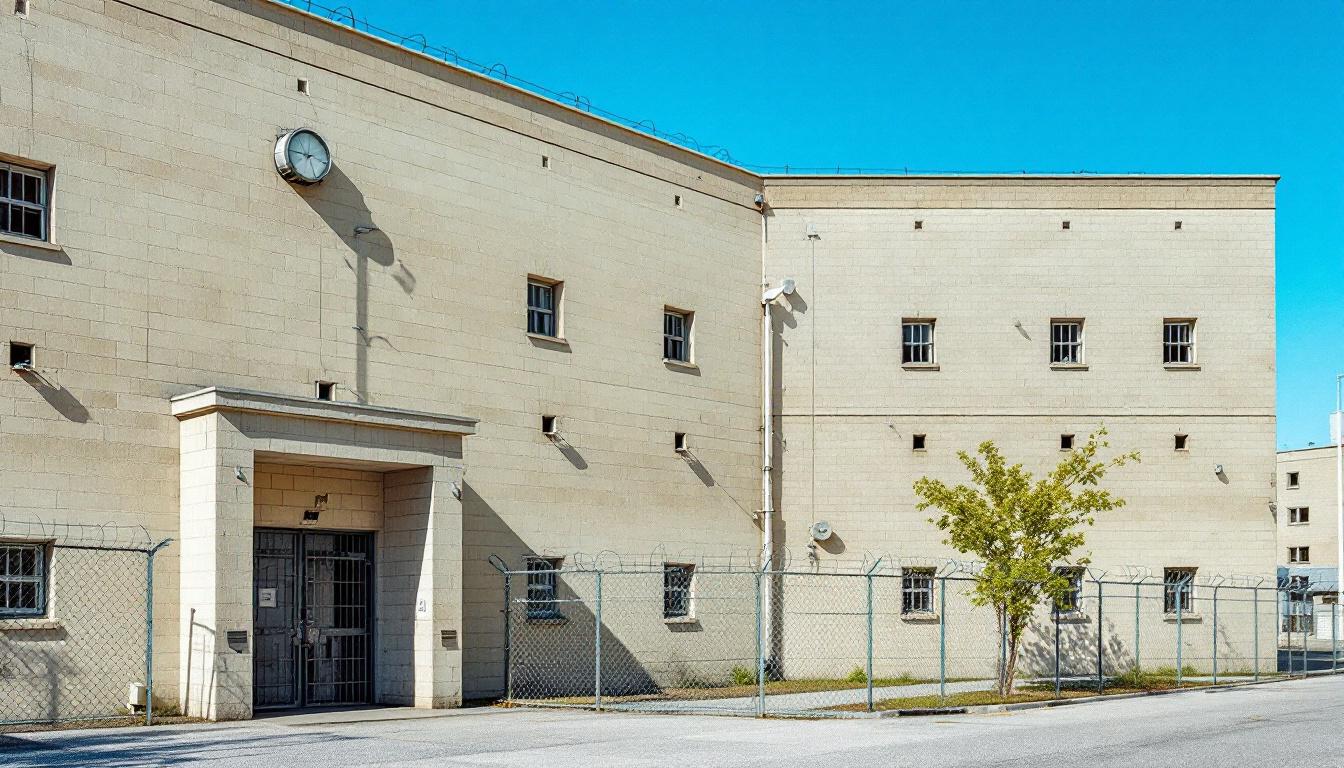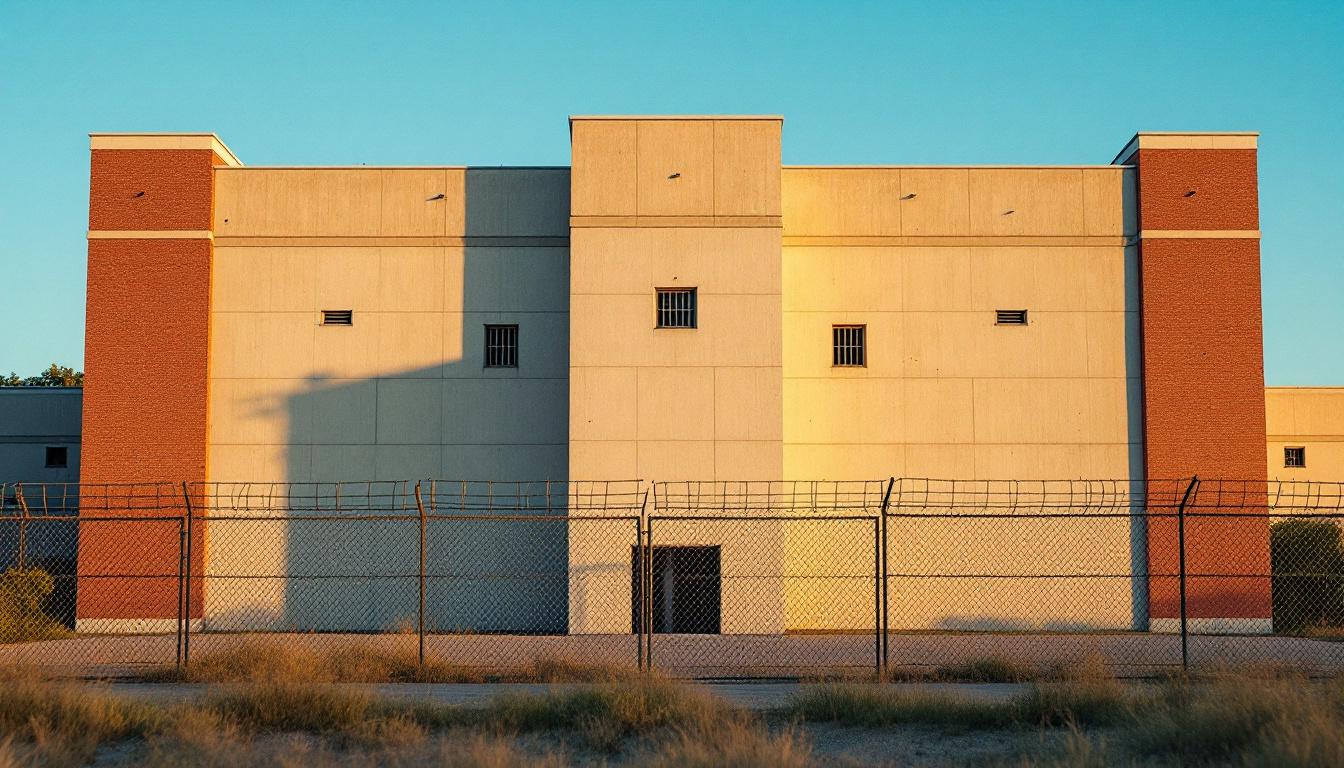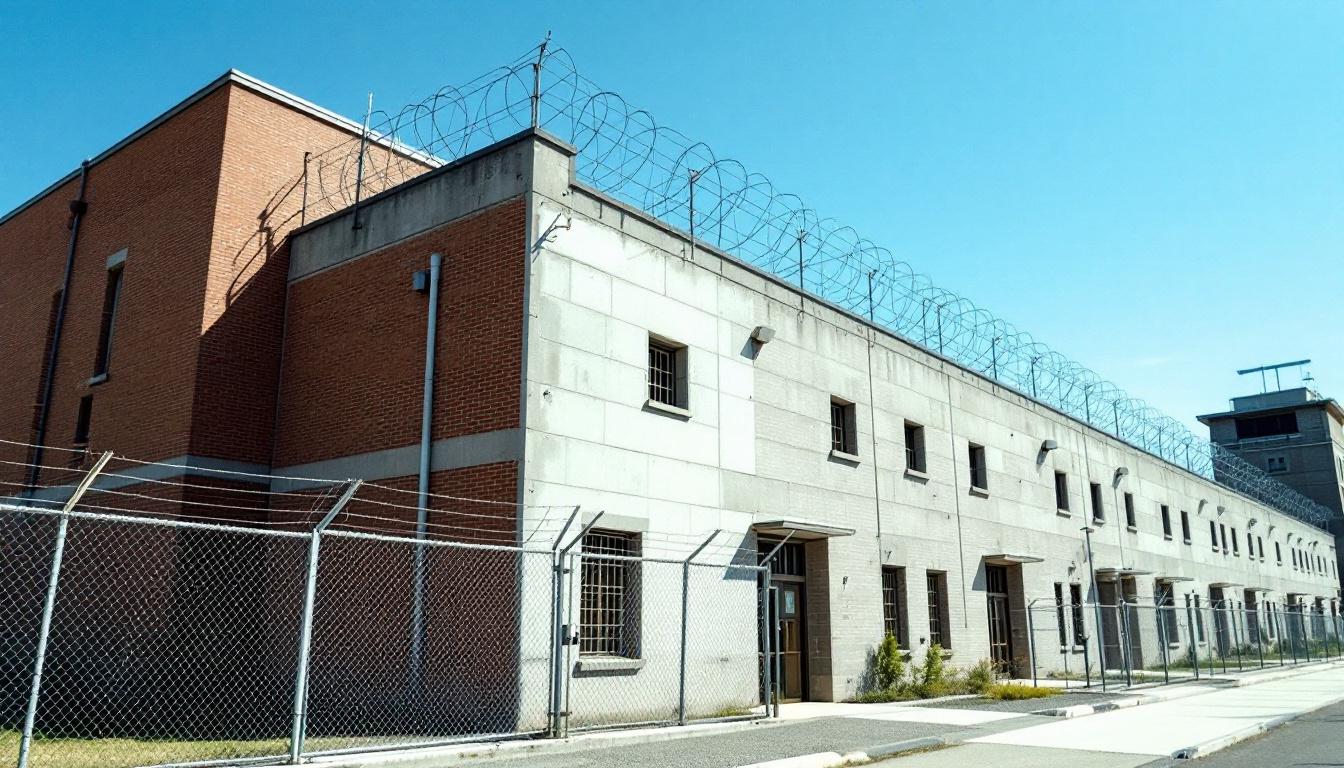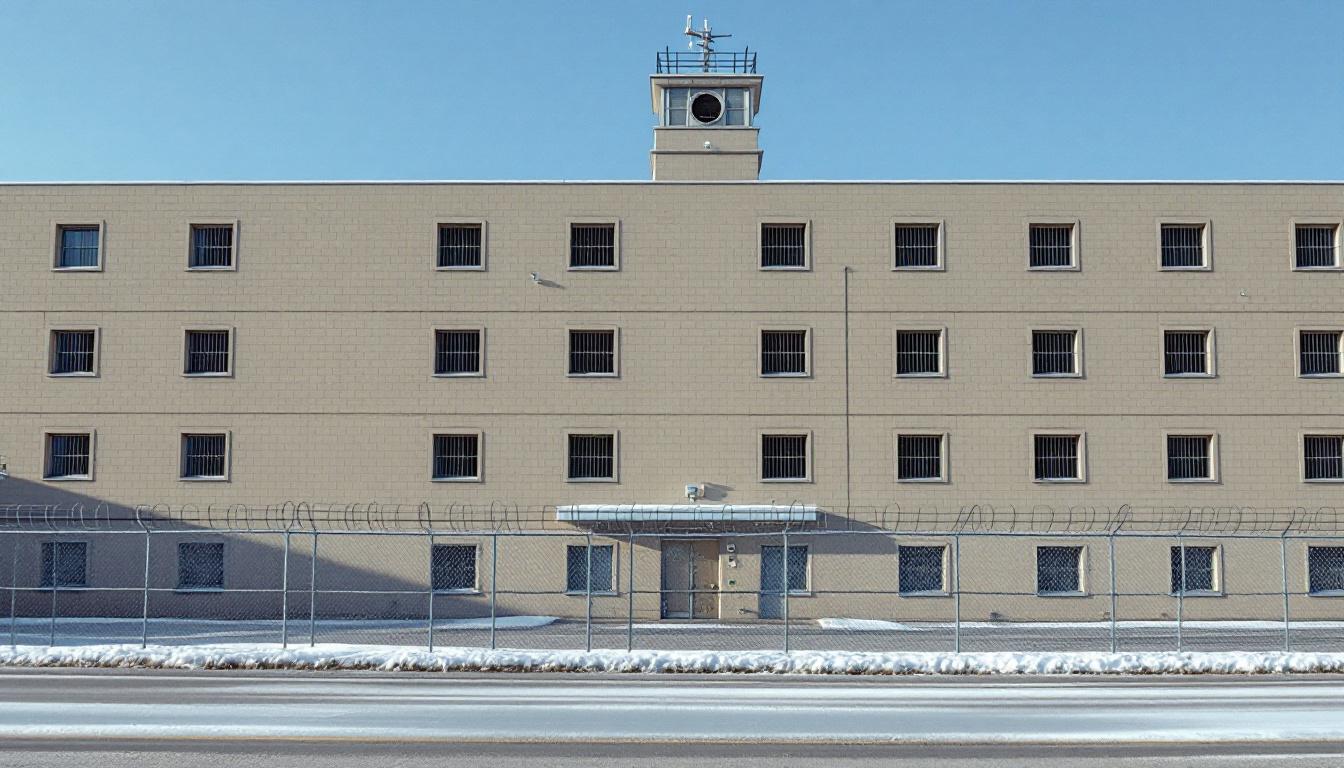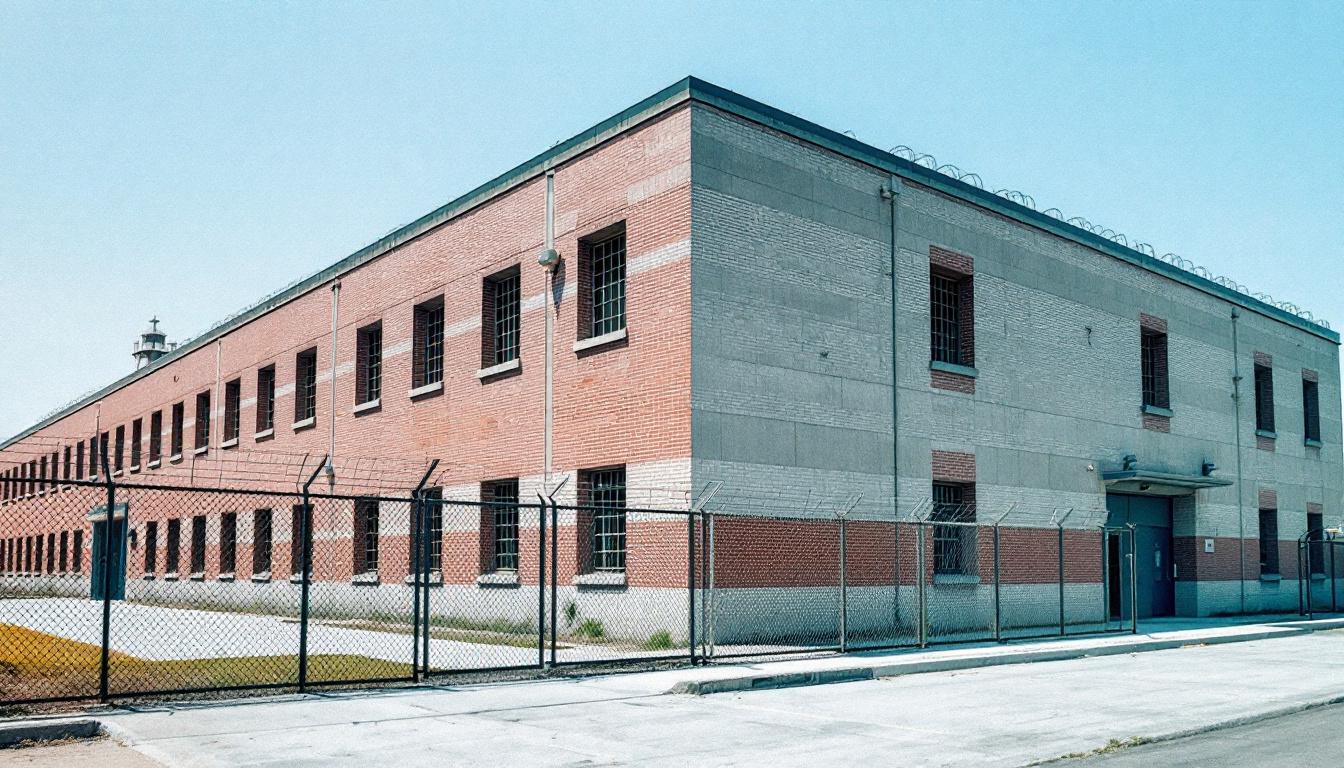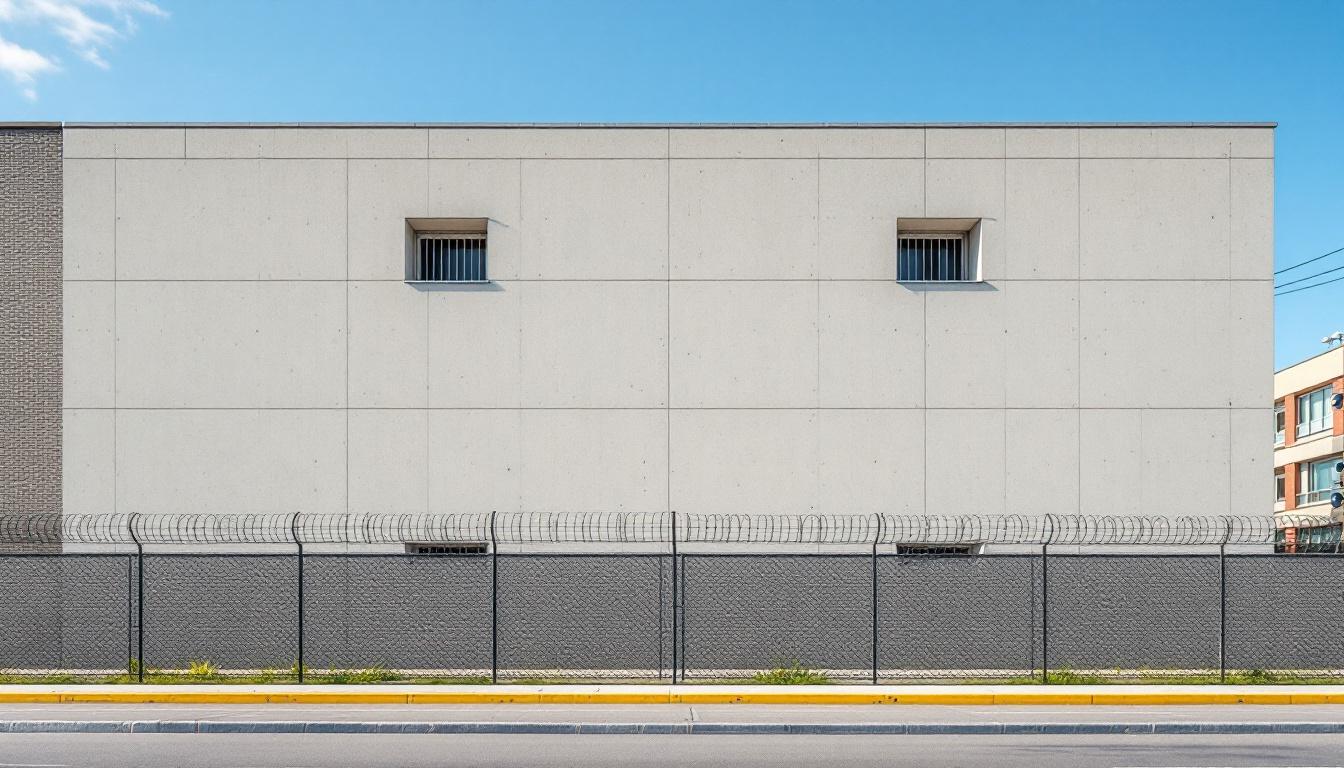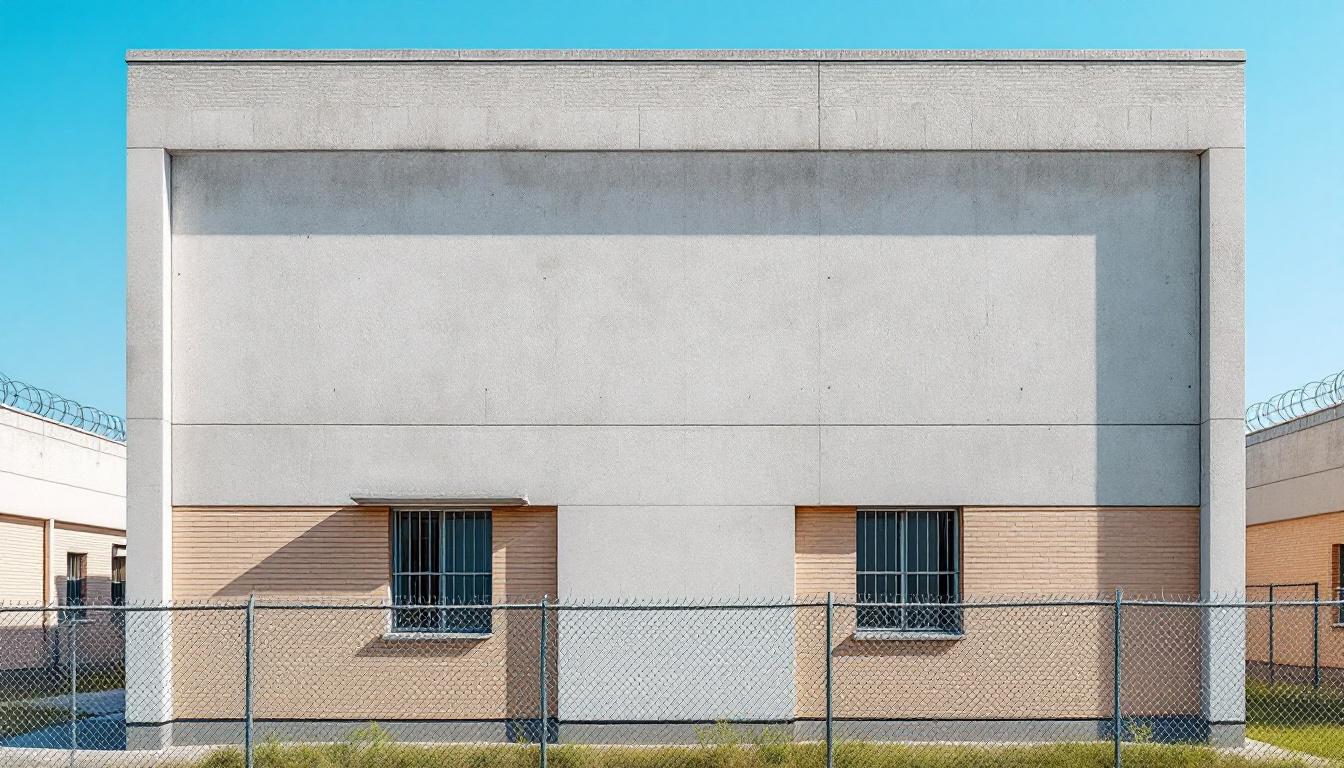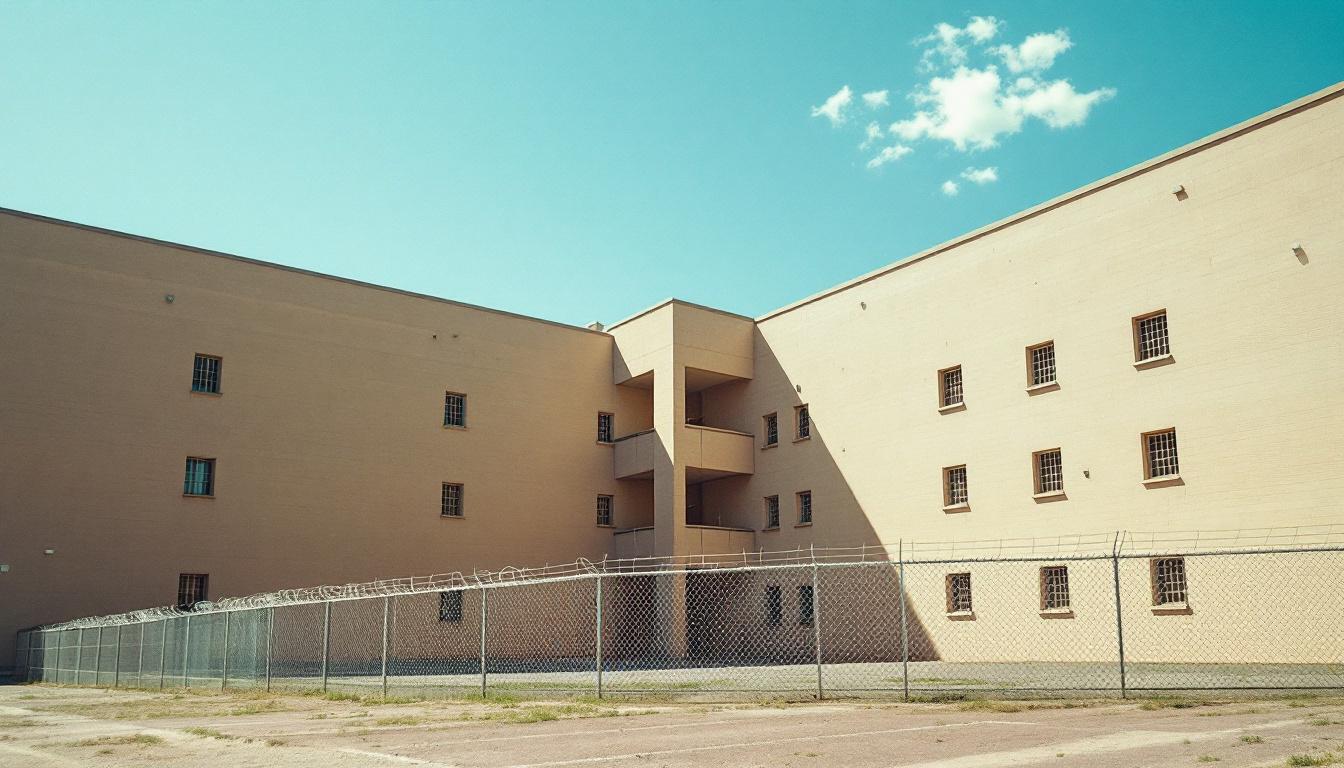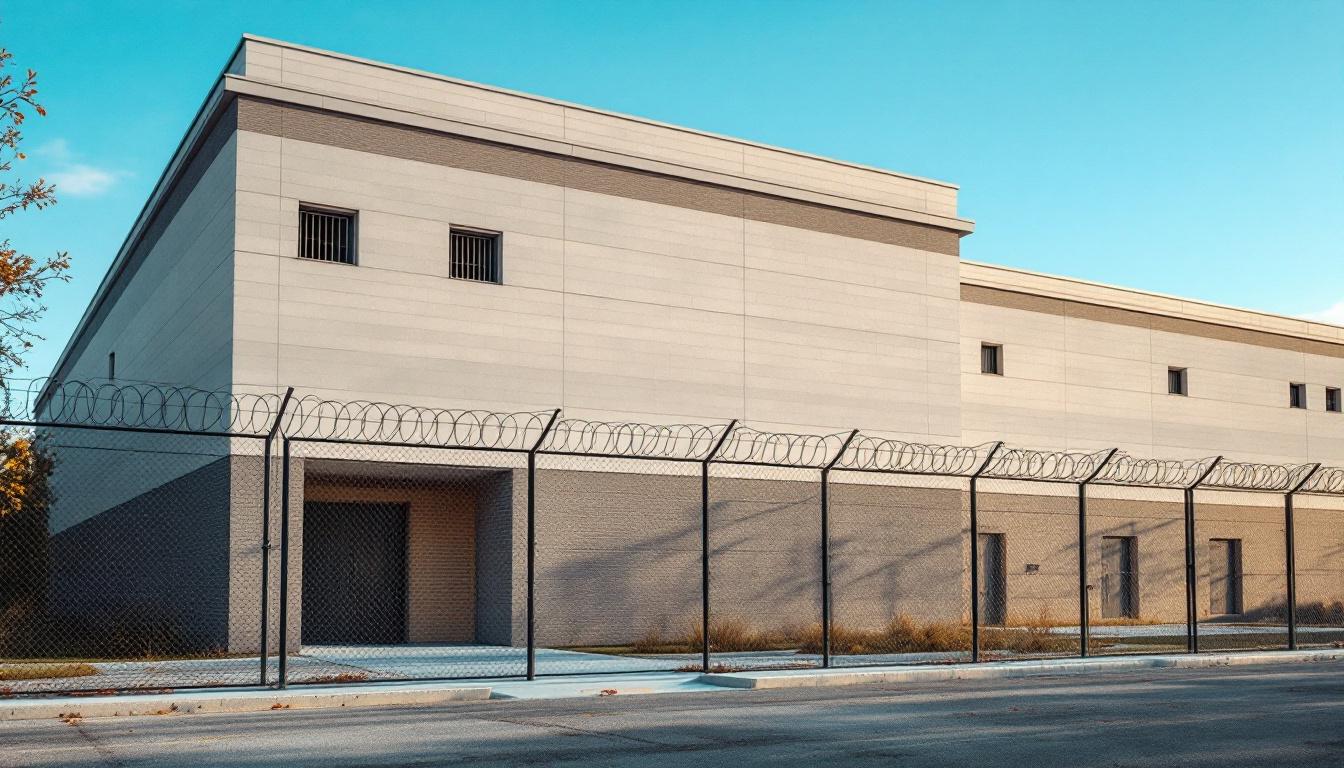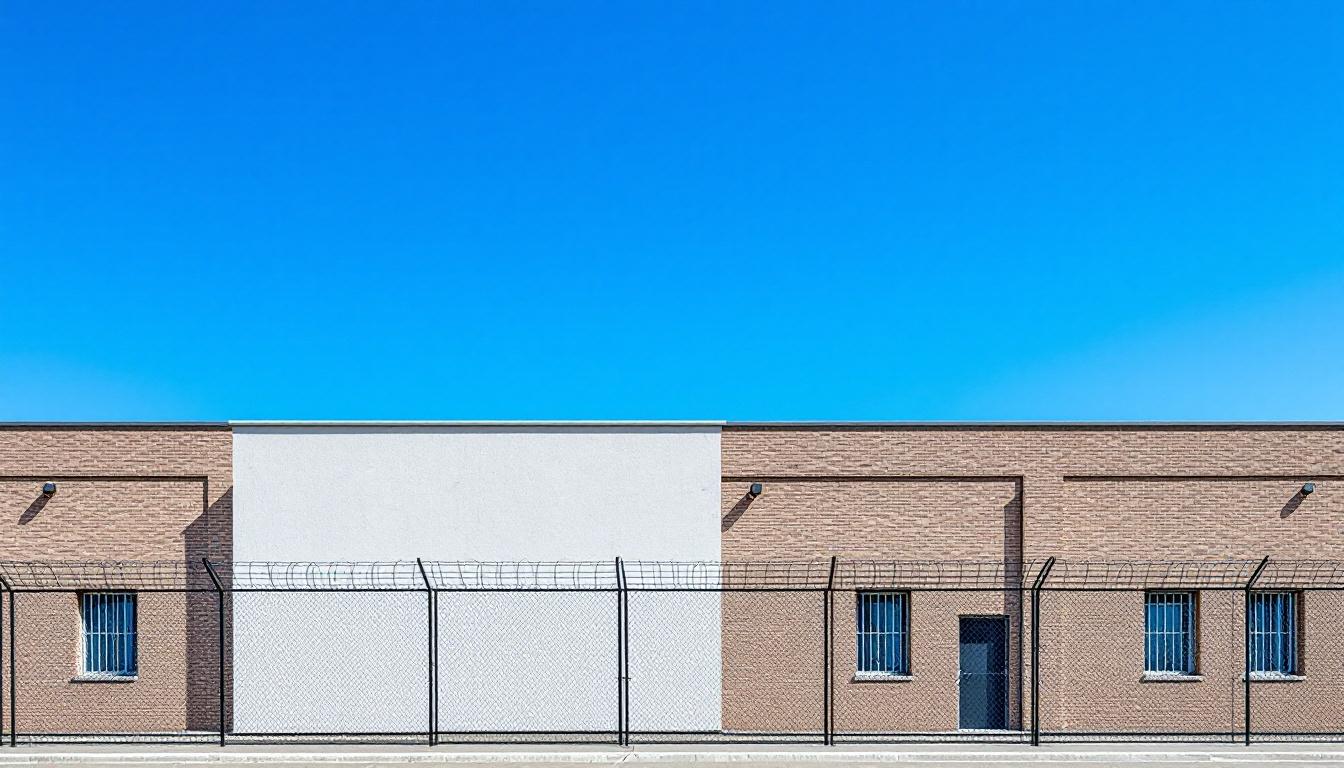
Quick Navigation
How to contact an inmate at Henderson County Detention Center
This comprehensive guide will walk you through how to connect with an inmate at Henderson County Detention Center. Follow the steps below to find an inmate and send letters and photos:
- Search for the inmate using our search tool below
- Create your account or log in to Penmate
- Write your message (up to 6,000 characters)
- Send instantly - inmates receive printed copies daily
Find an Inmate
Search for an inmate to start communicating today
Tip: You can search by first name, last name, or inmate ID number
To contact a person at Henderson County Detention Center start by searching for the person on the official facility website. Perform a search by following these steps:
- Step 1: Enter their first name and last name into the search form and click "Search"
- Step 2: Locate their inmate record
- Step 3: Write down their Inmate ID and any housing information provided
Important! Be sure to enter the person's full name. Nicknames should not be used.
How to Send Messages to Inmates

You can use your phone or computer to send emails, letters, and photos to an inmate. Messages are sent electronically to inmate tablets or kiosks at the facility. If you would like to send a message, start by searching for an inmate at Henderson County Detention Center.
Sending Photos and Postcards

A great way to send love and support to a loved one at Henderson County Detention Center is to send photos and postcards. It only takes a few minutes to send photos from your phone and it makes a huge difference. You can also mail postcards with words of support and inspiration, or design your own postcard for special moments like birthdays and holidays.
Important! Be sure not to send any explicit photos or they may not be approved by the facility. You can also use a photo printing app like Penmate to make sure your photos are printed at the correct size (4x6 or 3x5) and are mailed according to the rules and regulations of Henderson County Detention Center.
Frequently asked questions about Henderson County Detention Center
-
How long does it take to deliver a message?
If you're sending an email message your letter is usually delivered within 24-48 hours. For messages sent via mail you should expect delivery within 3-7 days. All messages will need be approved by Henderson County Detention Center.
-
How much does it cost to send a message to Henderson County Detention Center?
You can send a message free using your phone or mail a message via USPS for the price of a $0.60 stamp and envelope. You can also purchase credits or e-stamps from services starting at $1.99.
-
What services can I use to contact an inmate at Henderson County Detention Center?
Penmate
You can use Penmate to send letters and photos to an inmate from your phone. It's an easy way to stay in touch during your loved one's incarceration. Use the inmate locator to find an inmate's location and contact information, then you can send messages within a few minutes.
Securus messaging
Securus may be another option for communicating with an inmate at Henderson County Detention Center. You can create a friends and family account and purchase credits to send messages. All messages will be reviewed and must be approved by the facility.
JPay
Some county jails and state prisons may support sending messages with JPay. You must register an account with the system, find your loved one, and purchase stamps to send messages. For some locations you can also attach photos.
Smart Jail Mail
You may also check if Smart Jail Mail is available at Henderson County Detention Center. Smart Jail Mail is operated by Smart Communications and has contracted with some state and county jails. After purchasing credits, your messages and photos are sent to the facility, printed out, and then handed out to your loved one.
-
What is the mailing address of Henderson County Detention Center?
Mailing address:
Henderson County Detention Center
380 Borax Dr
Henderson, KY 42420
Phone: (270) 827-5560 -
What are the visiting hours at Henderson County Detention Center?
Visiting hours at Henderson County Detention Center vary by housing unit and security level. Generally, visits are scheduled on weekends and holidays, with some facilities offering weekday visits. Contact the facility directly at (270) 827-5560 or check their website for the current visiting schedule. Visits typically last 30-60 minutes and must be scheduled in advance.
-
What items are prohibited when sending mail to Henderson County Detention Center?
Prohibited items typically include: cash, personal checks, stamps, stickers, glitter, glue, tape, staples, paperclips, polaroid photos, musical or blank greeting cards, hardcover books, magazines with staples, and any items containing metal or electronics. Only send letters on plain white paper with blue or black ink. Photos must be printed on regular photo paper (no Polaroids). Always check with Henderson County Detention Center for their specific mail policies.
-
How do I send money to an inmate at Henderson County Detention Center?
You can send money to an inmate at Henderson County Detention Center through several methods: 1) Online using JPay, Access Corrections, or the facility's approved vendor, 2) Money orders mailed directly to the facility with the inmate's name and ID number, 3) Kiosks located in the facility lobby, or 4) Over the phone using a credit or debit card. Fees vary by method, typically ranging from $2.95 to $11.95 per transaction.
-
Can I schedule a video visit with an inmate at Henderson County Detention Center?
Many facilities now offer video visitation as an alternative to in-person visits. At Henderson County Detention Center, video visits may be available through services like Penmate, Securus Video Connect, GTL, or ICSolutions. Video visits typically cost $10-20 for 20-30 minutes and must be scheduled in advance. You'll need a computer or smartphone with a camera and reliable internet connection. Contact the facility for their specific video visitation policies and approved vendors.
-
What identification do I need to visit an inmate at Henderson County Detention Center?
All visitors must present valid government-issued photo identification such as a driver's license, state ID, passport, or military ID. Minors must be accompanied by a parent or legal guardian who can provide the minor's birth certificate. Some facilities require visitors to be on the inmate's approved visitation list, which may require a background check. Contact Henderson County Detention Center for specific ID requirements and visitor approval procedures.
-
How can I find out an inmate's release date?
To find an inmate's release date at Henderson County Detention Center, you can: 1) Use the online inmate search tool if available, 2) Call the facility's records department, 3) Contact the inmate's case manager or counselor, or 4) Have the inmate provide this information during a call or visit. For privacy reasons, some facilities only release this information to immediate family members.
Facility Overview
Contact Information
Henderson County Detention Center380 Borax Dr
Henderson, KY 42420
Phone: (270) 827-5560
Official Website
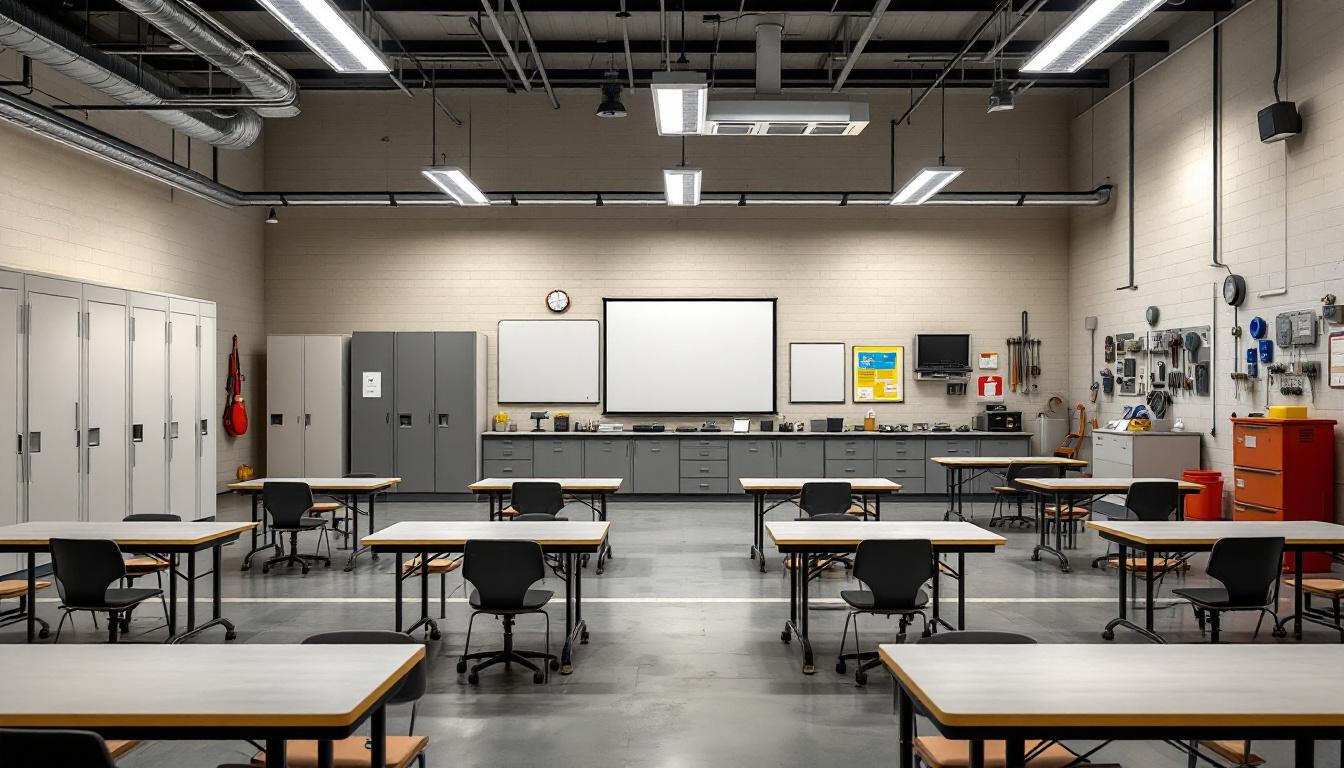
About Henderson County Detention Center
Positioned within the rolling hills of western Kentucky, Henderson County Detention, KY serves as a cornerstone facility in the region's commitment to both public safety and offender rehabilitation. This KY correctional facility operates under a comprehensive operational philosophy that balances secure custody with meaningful opportunities for personal transformation, reflecting the broader southern tradition of community-centered justice approaches.
The detention center typically maintains a structured environment where residents services encompass educational programming, vocational skill development, and behavioral intervention initiatives designed to address underlying factors contributing to criminal behavior. Henderson County Detention generally offers literacy programs, substance abuse counseling, and work-readiness training that prepare individuals for successful community reintegration. The facility's approach emphasizes accountability while providing pathways for positive change, recognizing that effective rehabilitation serves both individual residents and the broader Henderson community.
Through its integration within Kentucky's correctional network, this detention facility often collaborates with local social service agencies and educational institutions to ensure continuity of care and support. The center's operational framework typically includes mental health services, religious programming, and family visitation opportunities that maintain crucial community connections. By focusing on evidence-based practices and measurable outcomes, Henderson County Detention works to reduce recidivism while maintaining the security standards essential to protecting both staff and the surrounding region.
Programs & Services
Educational foundations form the cornerstone of Henderson County Detention's comprehensive approach to resident development, with structured learning opportunities designed to address both immediate academic needs and long-term career preparation. The facility's philosophy centers on equipping residents with practical skills and credentials that facilitate successful community reintegration, recognizing that meaningful rehabilitation requires addressing the underlying factors that contribute to recidivism. Through carefully structured initiatives, residents may access a range of services that target educational deficiencies while simultaneously building vocational competencies essential for sustainable employment.
Academic advancement initiatives typically include comprehensive education services that address varying literacy levels and learning needs among the resident population. GED preparation courses often serve as a primary focus, providing structured instruction that enables residents to complete their high school equivalency requirements during their period of incarceration. In addition to this foundational academic work, vocational training in construction trades may deliver hands-on experience in marketable skills, allowing participants to develop technical competencies that translate directly into employment opportunities upon release. These programs often emphasize both theoretical knowledge and practical application, ensuring residents gain comprehensive understanding of their chosen trade areas.
Support services and therapeutic initiatives complement the educational framework by addressing personal challenges that may impede successful rehabilitation. Substance abuse treatment programs typically provide evidence-based interventions designed to help residents understand and overcome addiction-related behaviors that may have contributed to their legal difficulties. Vocational programs often extend beyond formal trade training to include grounds maintenance opportunities, which may offer residents practical work experience while contributing to facility operations. In addition to this, domestic violence programs may deliver specialized counseling and education designed to address relationship dynamics and behavioral patterns, providing residents with tools for healthier interpersonal relationships and conflict resolution strategies essential for community reintegration.
Daily Life & Visitation
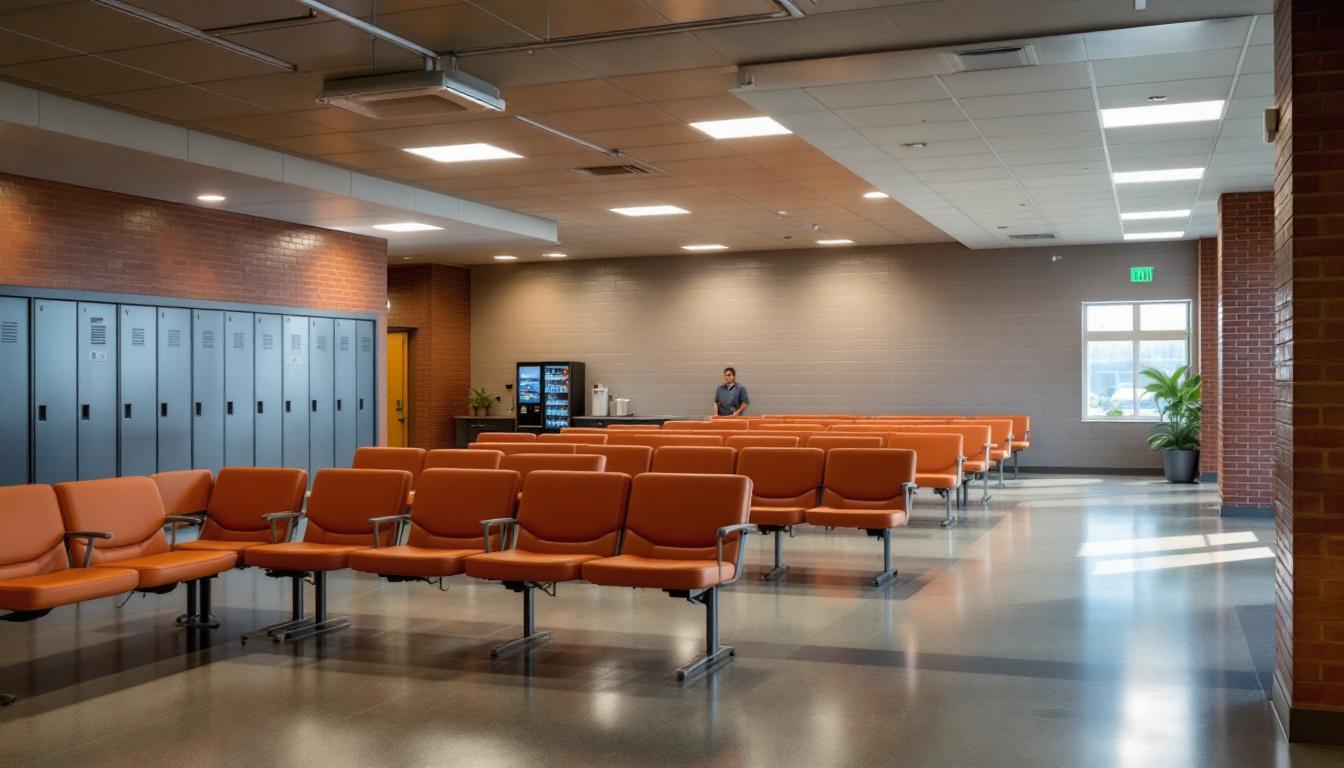
The rhythmic sound of morning announcements consistently marks the beginning of each day, as residents begin their carefully orchestrated routine that delivers structure and predictability to their daily experience. Today, like every day, residents typically wake at designated hours and participate in scheduled count times that occur throughout the day, with meals served at regular intervals in the facility's dining areas. This structured approach generally provides residents with a framework that helps establish routine and stability during their time at the detention center.
In addition to this daily framework, residents are typically housed in units that may accommodate multiple individuals, with basic furnishings and personal storage space for approved belongings. Living areas usually include common spaces where residents can interact during designated recreation periods, and the facility generally maintains policies regarding personal property that residents may keep in their possession. Meals are typically served in communal dining areas, with menu planning that often takes into account nutritional requirements and dietary restrictions, while commissary services may be available to allow residents to purchase additional approved items.
Despite this structured environment, the facility typically offers various programming opportunities that deliver both educational and vocational benefits to residents. Work assignments may include facility maintenance, kitchen duties, or other operational support roles that help residents develop skills while contributing to the facility's daily operations. Recreation periods usually provide opportunities for physical exercise and social interaction, while visitation policies generally allow for regular contact with family members and approved visitors. Communication options typically include phone access and possibly video visitation services, helping residents maintain important connections with their support systems throughout their stay.
Ready to Connect?
Start communicating with your loved one today
Search for an Inmate
